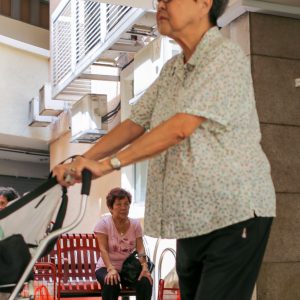Childless Aging in Singapore and Thailand (CAST)
April 12, 2021

Singapore’s baby bonus scheme was first implemented on 1 April 2001 by then-Prime Minister Goh Chok Tong. It aimed to improve Singapore’s declining birth rate through monetary incentives intended to cover part of the costs of educating and rearing children. More recently in 2015, enhancements were made to provide even greater benefit to parents. However, despite the government’s best efforts, Singapore’s fertility rate remains low.
In Singapore and urban Thailand, an increasing number of older adults have never had a child in their lives. Both countries are also projected to see the relative size of their elderly population doubled from 2020 to 2050, making the proportion of childlessness apply to a larger population base. This is concerning as it increases the dependency ratio, which places a greater economic burden on a small working population to support a larger non-working aging population. Additionally, older adults without children may lack social support in their later years and require more assistance from arranged care systems provided by the government.
‘Childless Aging in Singapore and Thailand (CAST)’ employs a mixed methods approach to examine the demographics of childlessness, factors determining childlessness, and the extent to which childlessness affects the later-life well-being among adults aged 50 and above in Singapore and Thailand. A cross-country comparative approach to examine childless aging in both countries will reveal how structural and institutional factors and cultural norms influence childless aging, and where and how the intersections of gender, socioeconomic status, race/ethnicity, and urbanity come into play.
Through this study, Associate Professor Bussarawan (Puk) Teerawichitchainan (NUS Sociology and Centre for Family and Population Research) and her team will gather useful empirical evidence to assist with policy formulation, which will help address the implications of a childless elderly population.
